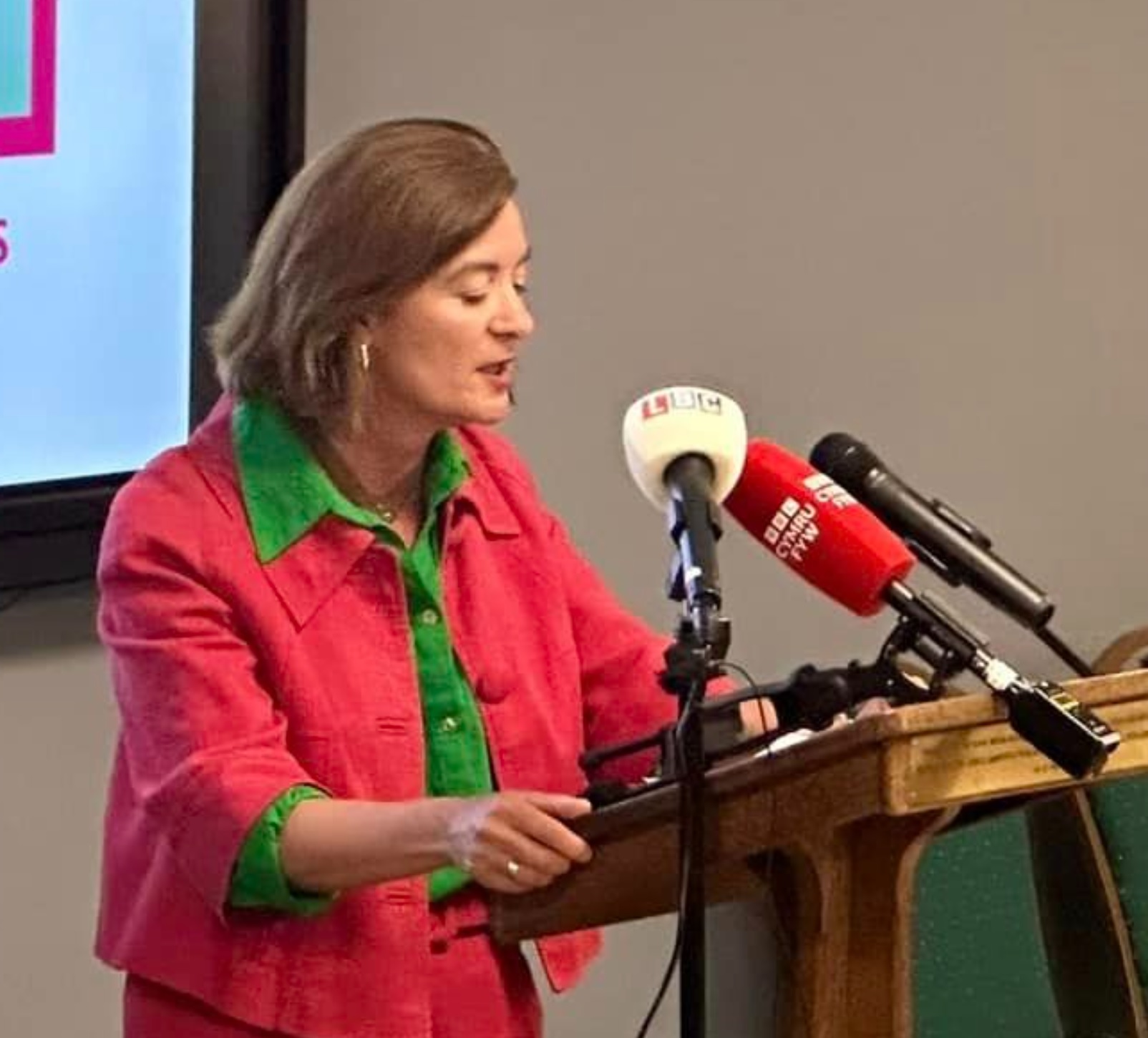Business
Delaying payments could cost jobs

 A NEW report from the Association of Chartered Certified Accountants has found that the culture of late payment among businesses inhibits the ability of the UK’s smallest organisations to take on more employees.
A NEW report from the Association of Chartered Certified Accountants has found that the culture of late payment among businesses inhibits the ability of the UK’s smallest organisations to take on more employees.
Charlotte Chung, ACCA’s senior policy advisor on small and medium sized enterprise (SME) issues has said: “Microbusinesses and other small enterprises are less likely to increase headcount when faced with late payment. Compared to large corporates, we found that the effect of late payment on small businesses who want to expand was significantly greater, by 54% and 47% respectively.”
The report found that businesses with fewer than 50 employees are typically twice as likely as large corporates to report problems with late payment.
According to Charlotte Chung, the cumulative impact of persistent late payment on small business activity is significant.
“Late payment hurts individual businesses and the wider economy in a number of ways, from increased costs to reduced capital spending or suppliers going out of business. What’s more, its impact is exacerbated among credit-constrained businesses. Unsurprisingly, it is the headcount and investment decisions of smaller businesses that are most sensitive to late payment. Late payment and customer defaults can cascade down the supply chain, crossing industries and borders until they reach the most financially secure finance institutions, which in many cases involves the Government.”
While these findings may point to late payment being a wholly harmful business practice that requires hard action to remedy, ACCA advises care be taken by policymakers. The report identifies a very large share of business to business trade that makes use of credit – where payment is not made at the time when goods or services are delivered, but rather at a later date, usually agreed in advance by the two parties.
The important role late payment plays in economic growth means it requires a nuanced legislative touch from policymakers, as Charlotte Chung explains: “Late payment is often understood as a solely negative aspect in business, but this is not necessarily the case. It can also be a useful tool for business growth. Only when this complexity is understood can appropriate responses develop to address the aspects of late payment, which do impact negatively on businesses. ACCA has identified thirteen types of deviations from prompt payment, each of which calls for a different approach from businesses and policymakers. Failing to distinguish between them will lead to poor policies that run the risk of doing more harm than good.”
Along with outlining the thirteen varieties of late payment, the report includes a set of objectives for government intervention in the trade credit marker designed to deal with the negative aspects of late payment without compromising economic growth:
To dampen the systemic impact of late payment on the economy by encouraging ‘deep pockets’ (e.g. financial services firms or tax authorities) with a stake in the entire chain supply.
To ensure that the legal and policy frameworks around incorporation, financing, contracts and insolvency and are aligned in order to deal with different aspects of late payment promptly and in a consistent manner.
To encourage trade credit by giving suppliers a minimum level of protection against supplier dilution – i.e. the reassurance that even when customers fail they can still look forward to a minimum level of recoveries.
To ensure that businesses can look forward to a similar level of discretion in negotiating credit terms with their customers regardless of whether they are new or repeat suppliers.
To encourage the development of financial markets so that businesses have quick access to alternative financing options in response to charging terms of credit or unexpected late payment.
Business
Tax deadline for self-employed and landlords as digital system goes live in April

Quarterly online reporting to become mandatory for higher earners under HMRC shake-up
MORE than 860,000 sole traders and landlords across the UK are being urged to prepare now for major changes to the way they report tax, with new digital rules coming into force in just two months.
From April 6, thousands of self-employed workers and property landlords earning over £50,000 a year will be required to keep digital records and submit quarterly income updates to HM Revenue & Customs under the Government’s Making Tax Digital scheme.
The changes form part of a wider overhaul designed to modernise the tax system and reduce errors.
Instead of submitting figures once a year, those affected will use approved software to record income and expenses throughout the year and send short quarterly summaries to HMRC. Officials stress these are not extra tax returns, but updates intended to spread the workload and avoid the usual January rush.
Free and paid software options are available, with the system automatically generating the figures needed for submission.
At the end of the tax year, users will still file a Self Assessment return, but most of the information will already be stored digitally.
Craig Ogilvie, HMRC’s Director of Making Tax Digital, said the move should make tax reporting simpler.
He said: “With two months to go until MTD for Income Tax launches, now is the time to act. The system is straightforward and helps reduce errors. Thousands have already tested it successfully.
“Spreading your tax admin throughout the year means avoiding that last-minute scramble to complete a tax return every January.”
More than 12,000 quarterly updates have already been submitted during a voluntary trial.
Phased rollout
The new rules will be introduced gradually:
• From April 2026 – those earning £50,000 or more
• From April 2027 – those earning £30,000 or more
• From April 2028 – those earning £20,000 or more
To ease the transition, HMRC says it will not issue penalty points for late quarterly submissions during the first 12 months.
After that, a points system will apply, with a £200 fine only triggered once four late submissions are reached.
Anyone unable to use digital tools for genuine reasons can apply for an exemption.
Tax agents and accountants are advising clients to prepare early to avoid last-minute problems.
Further guidance, webinars and sign-up details are available via GOV.UK.
Business
Bid to convert office space into chocolate factory, salon and laundrette

A CALL for the retrospective conversion of office space previously connected to a Pembrokeshire car hire business to a chocolate factory, a beauty salon and a laundrette has been submitted to county planners
In an application to Pembrokeshire County Council, Mr M Williams, through agent Preseli Planning Ltd, sought retrospective permission for the subdivision of an office on land off Scotchwell Cottage, Cartlett, Haverfordwest into three units forming a chocolate manufacturing, a beauty salon, and a launderette, along with associated works.
A supporting statement said planning history at the site saw a 2018 application for the refurbishment of an existing office building and a change of use from oil depot offices to a hire car office and car/van storage yard, approved back in 2019.
For the chocolate manufacturing by ‘Pembrokeshire Chocolate company,’ as part of the latest scheme it said: “The operation comprises of manufacturing of handmade bespoke flavoured chocolate bars. Historically there was an element of counter sales but this has now ceased. The business sales comprise of online orders and the delivery of produce to local stockist. There are no counter sales from the premises.”
It said the beauty salon “offers treatments, nail services and hairdressing,” operating “on an appointment only basis, with the hairdresser element also offering a mobile service”. It said the third unit of the building functions as a commercial laundrette and ironing services known as ‘West Coast Laundry,’ which “predominantly provides services to holiday cottages, hotels and care homes”.
The statement added: “Beyond the unchanged access the site has parking provision for at least 12 vehicles and a turning area. The building now forms three units which employ two persons per unit. The 12 parking spaces, therefore, provide sufficient provision for staff.
“In terms of visiting members of the public the beauty salon operates on an appointment only basis and based on its small scale can only accommodate two customers at any one time. Therefore, ample parking provision exists to visitors.
“With regard to the chocolate manufacturing and commercial laundrette service these enterprises do not attract visitors but do attract the dropping off laundry and delivery of associated inputs. Drop off and collections associated with the laundry services tend to fall in line with holiday accommodation changeover days, for example Tuesday drop off and collections on the Thursday.
“With regard to the chocolate manufacturing ingredients are delivered by couriers and movements associated with this is also estimated at 10 vehicular movements per week.”
The application will be considered by county planners at a later date.
Business
First Minister criticised after ‘Netflix’ comment on struggling high streets

Government announces 15% support package but campaigners say costs still crushing hospitality
PUBS, cafés and restaurants across Wales will receive extra business rates relief — but ministers are facing criticism after comments suggesting people staying home watching Netflix are partly to blame for struggling high streets.
The Welsh Government has announced a 15% business rates discount for around 4,400 hospitality businesses in 2026-27, backed by up to £8 million in funding.
Announcing the package, Welsh Government Finance Secretary Mark Drakeford said: “Pubs, restaurants, cafés, bars, and live music venues are at the heart of communities across Wales. We know they are facing real pressures, from rising costs to changing consumer habits.
“This additional support will help around 4,400 businesses as they adapt to these challenges.”
The announcement came hours after Eluned Morgan suggested in Senedd discussions that changing lifestyles — including more time spent at home on streaming services — were contributing to falling footfall in town centres.
The remarks prompted political backlash.
Leader of the Welsh Liberal Democrats, Jane Dodds, said: “People are not willingly choosing Netflix over the high street. They are being forced indoors because prices keep rising and wages are not.
“Blaming people for staying at home is an insult to business owners who are working longer hours just to survive.”
Industry groups say the problem runs deeper than consumer behaviour.
The Campaign for Real Ale (CAMRA) welcomed the discount but warned it would not prevent closures.
Chris Charters, CAMRA Wales director, said: “15% off for a year is only the start. It won’t fix the unfair business rates system our pubs are being crushed by.
“Welsh publicans need a permanent solution, or doors will continue to close.”
Across Pembrokeshire, traders have repeatedly told The Herald that rising energy bills, wage pressures and rates — rather than a lack of willingness to go out — are keeping customers away.
Several town centres have seen growing numbers of empty units over the past year, with independent shops and hospitality venues reporting reduced footfall outside the main tourist season.
While ministers say the relief balances support with tight public finances, business groups are calling for wider and longer-term reform.
Further debate on rates changes is expected later this year.

-

 Crime23 hours ago
Crime23 hours agoSex offender jailed after living off grid in Pembrokeshire and refusing to register
-

 News2 days ago
News2 days agoPrincess of Wales visits historic Pembrokeshire woollen mill
-

 Crime6 days ago
Crime6 days agoPembroke man accused of child sex offences sent to Swansea Crown Court
-

 Health4 days ago
Health4 days agoDoctor struck off after sexual misconduct findings at Withybush Hospital
-

 Crime3 hours ago
Crime3 hours agoTeacher injured and teenager arrested for attempted murder at Milford Haven School
-

 Crime6 days ago
Crime6 days agoManhunt intensifies after woman seriously injured in Carmarthen park stabbing
-

 Community6 days ago
Community6 days ago50s women threaten legal action over pension compensation refusal
-

 Crime6 days ago
Crime6 days agoDisqualified HGV driver charged after dangerous A40 incident
























